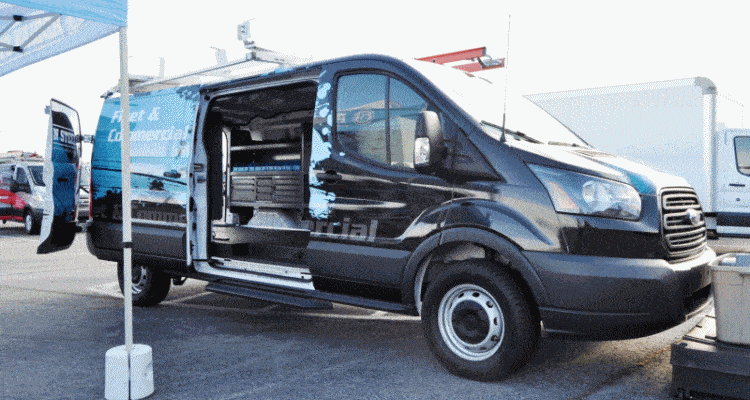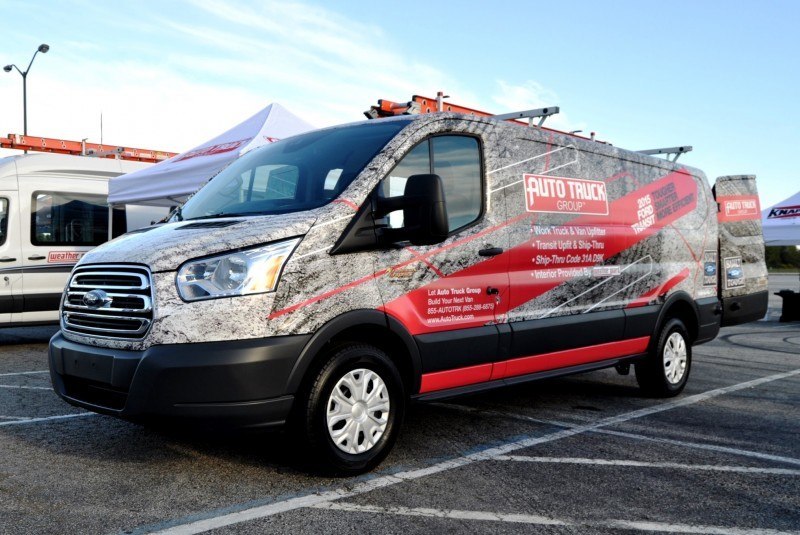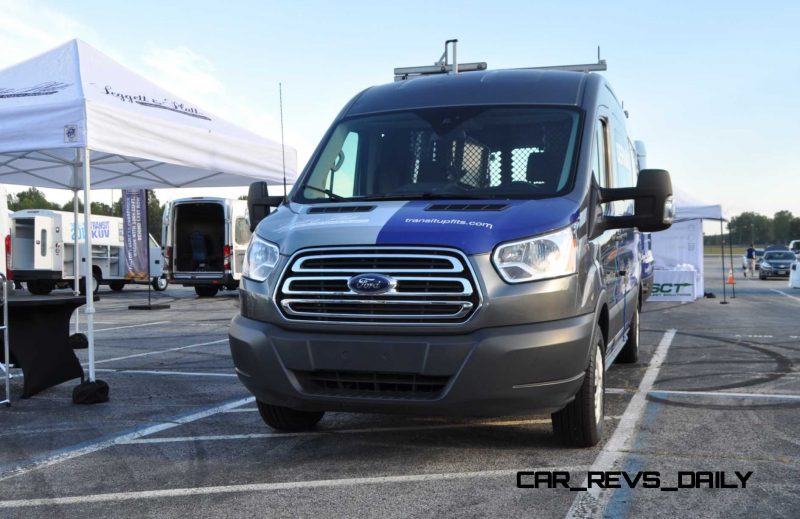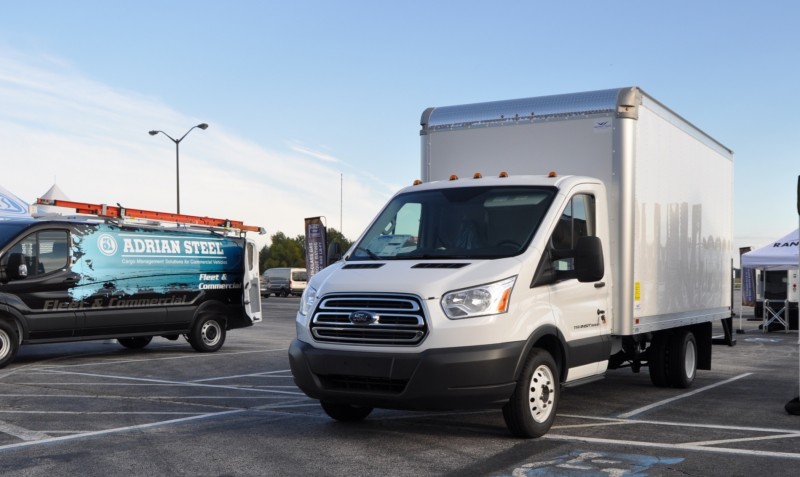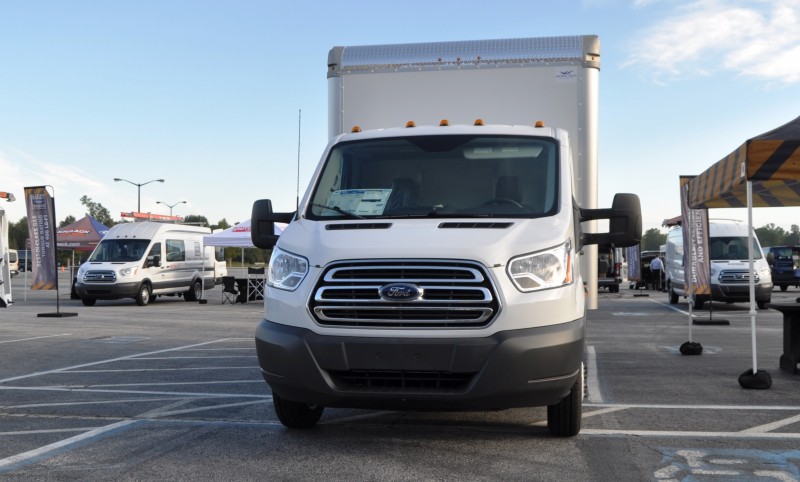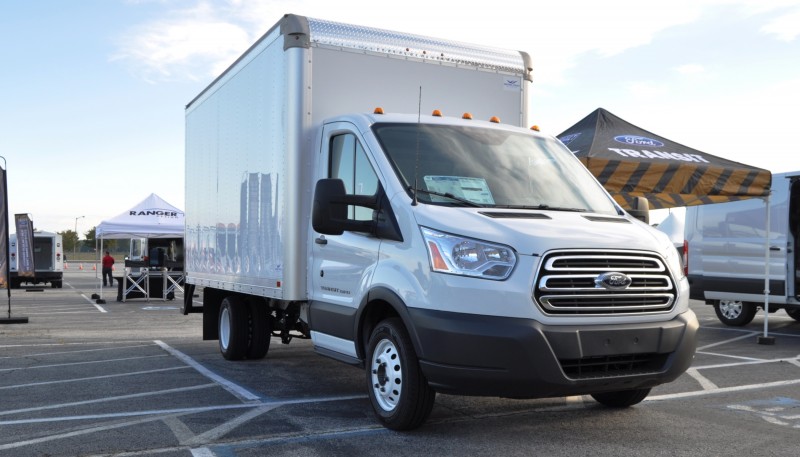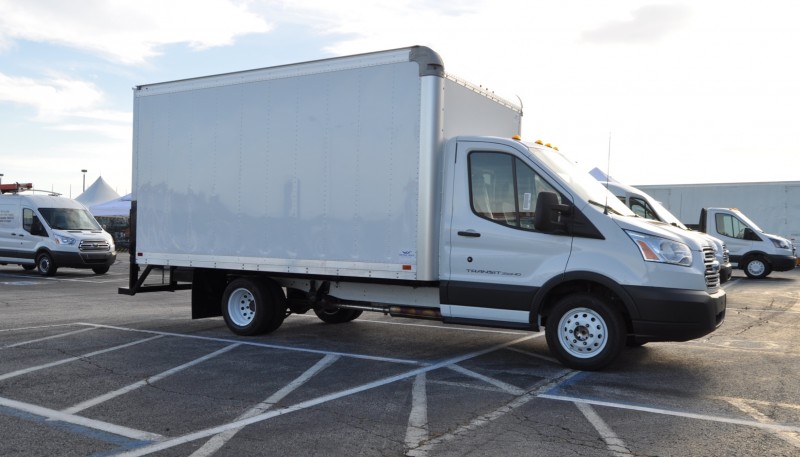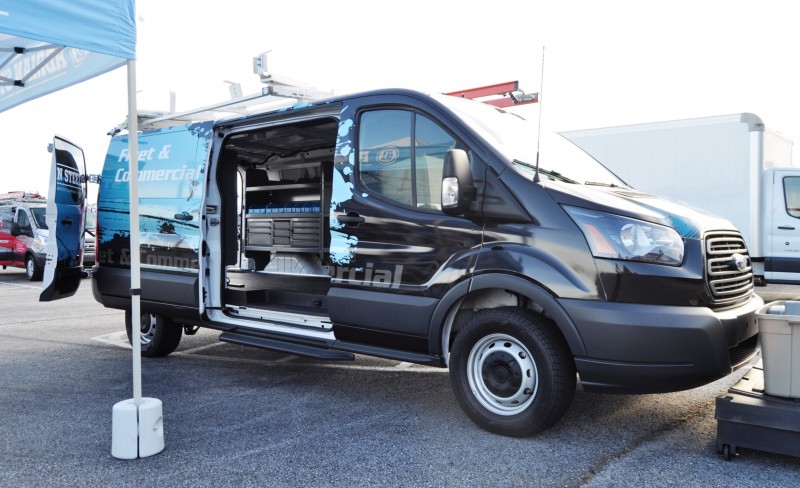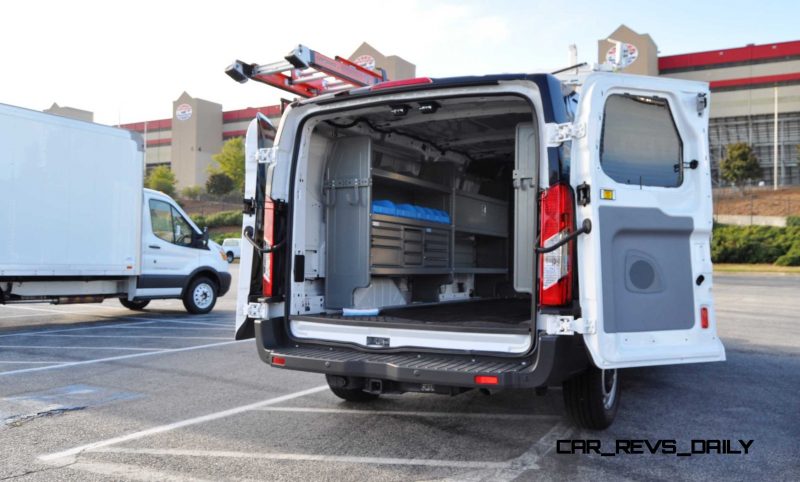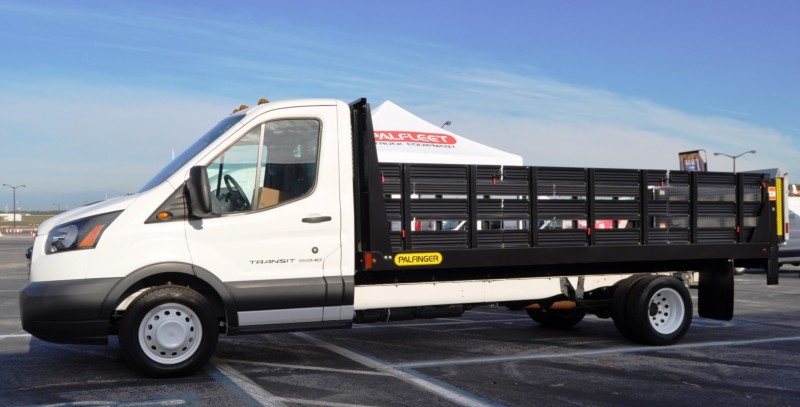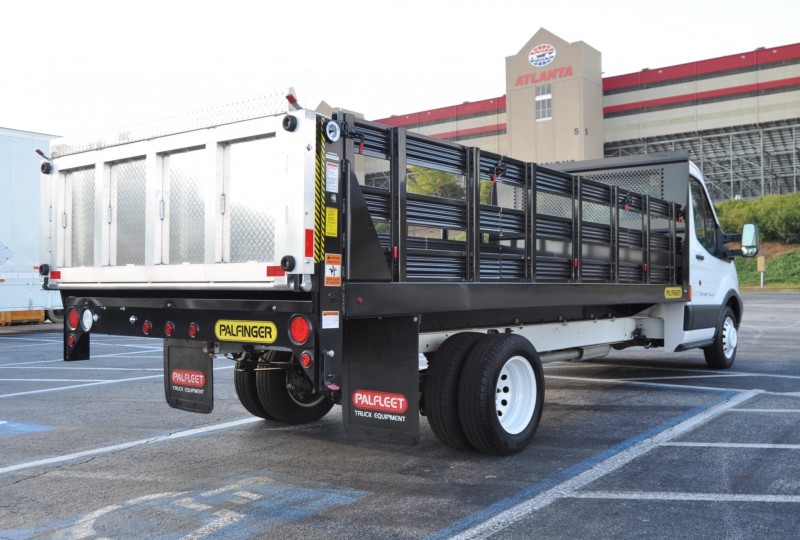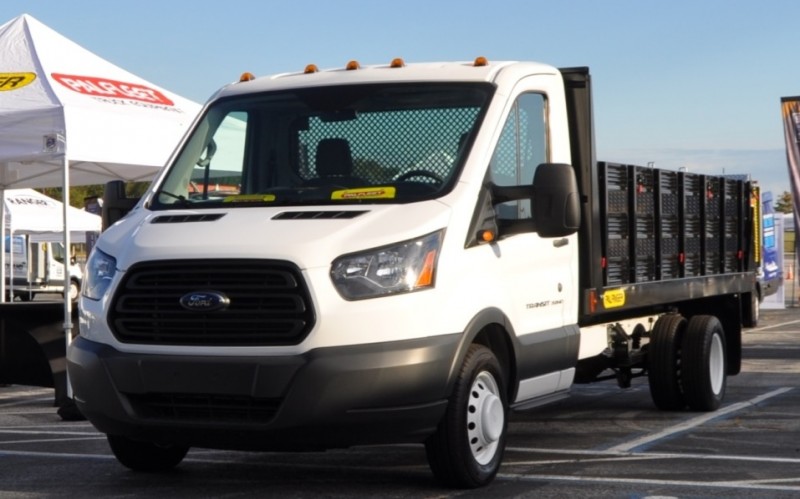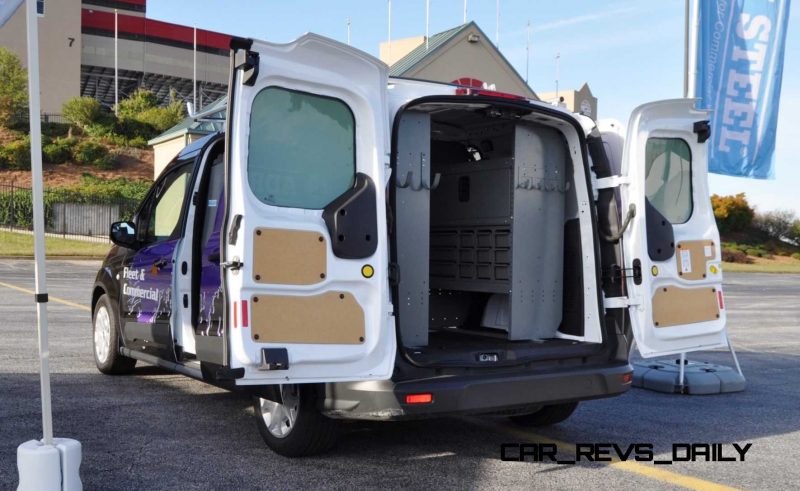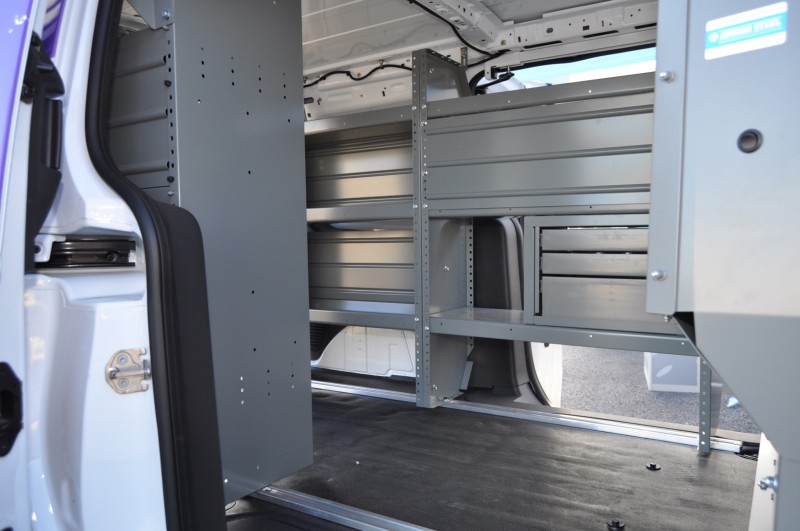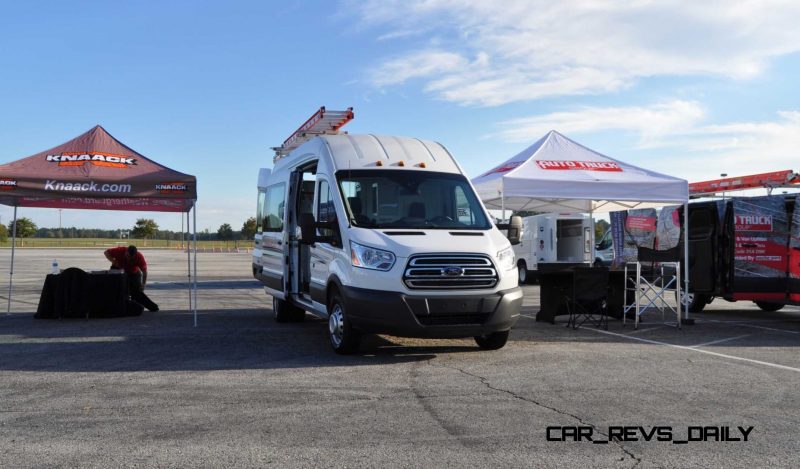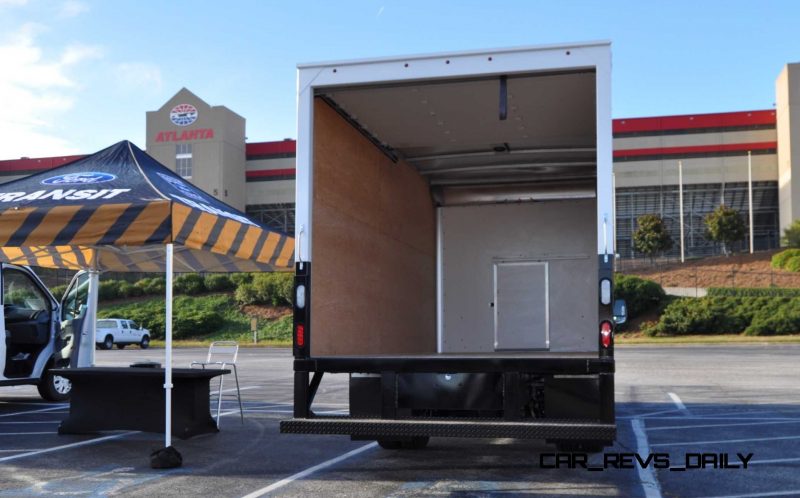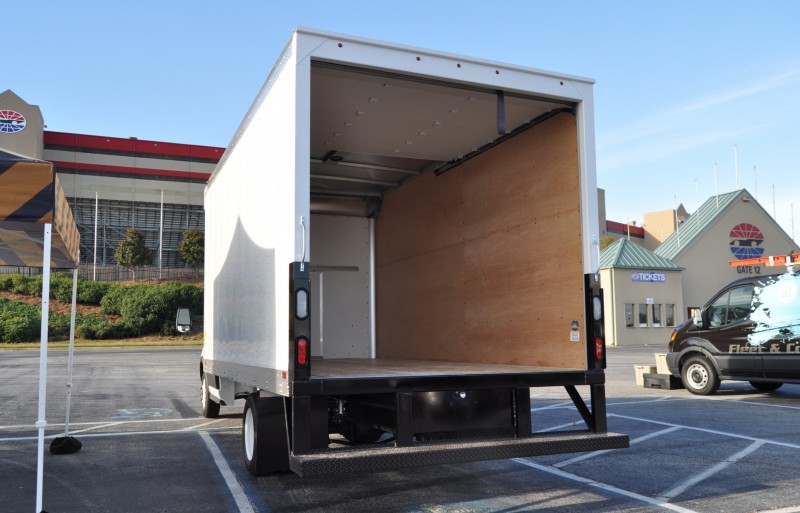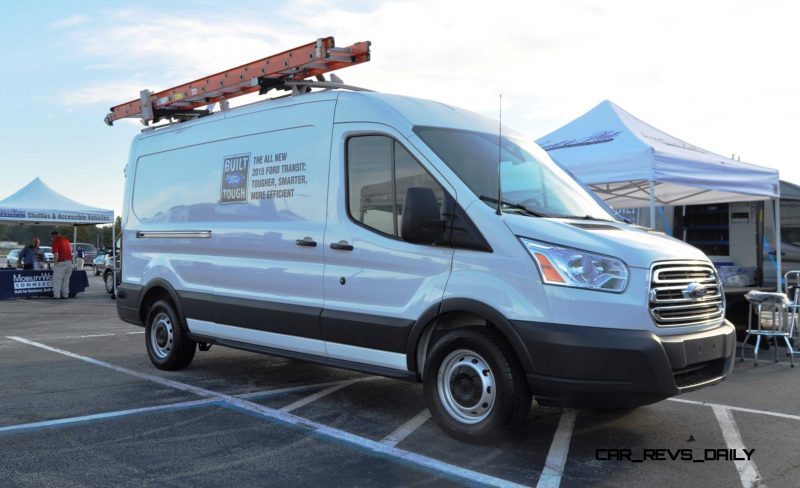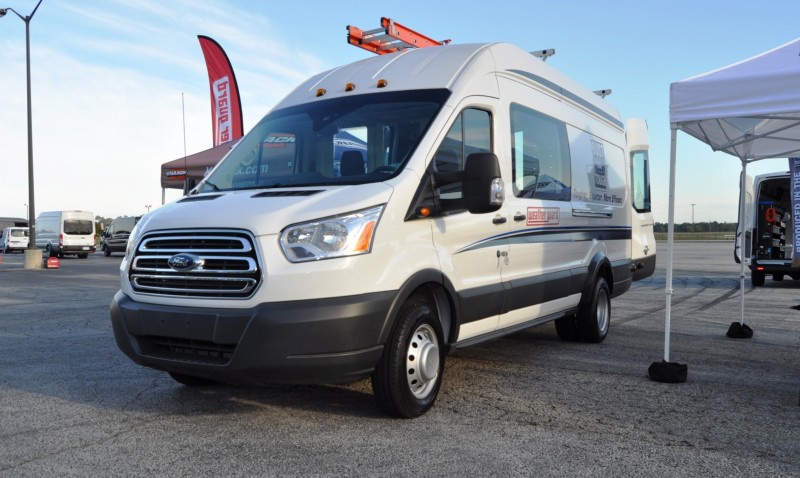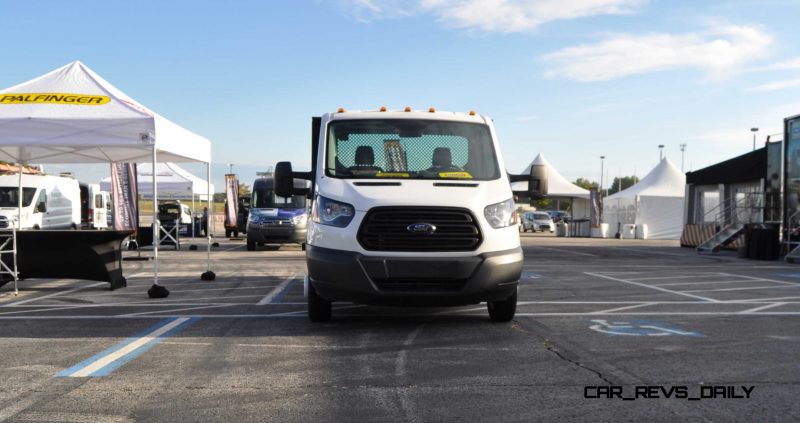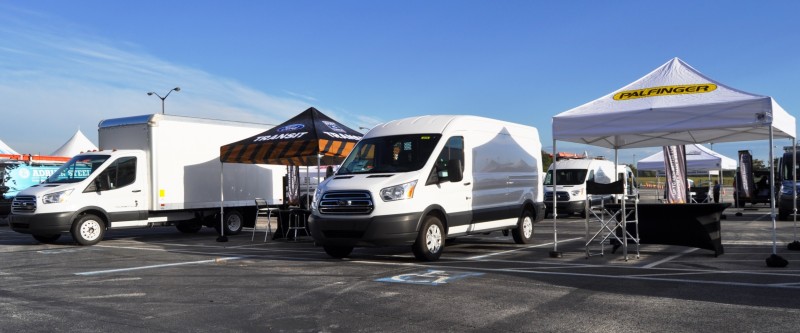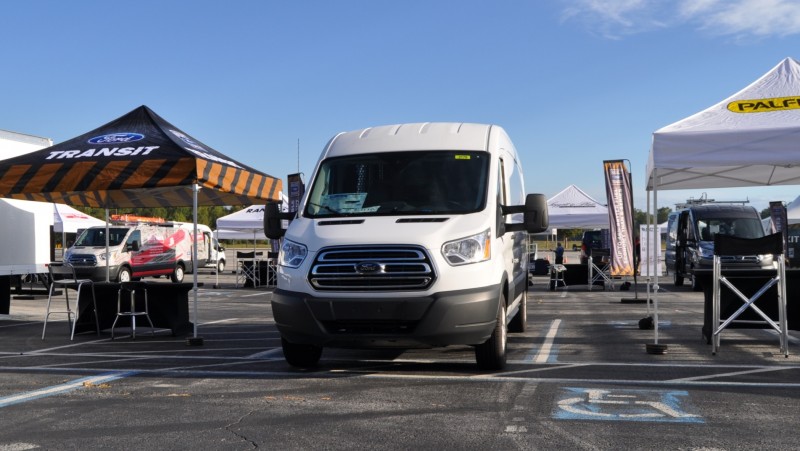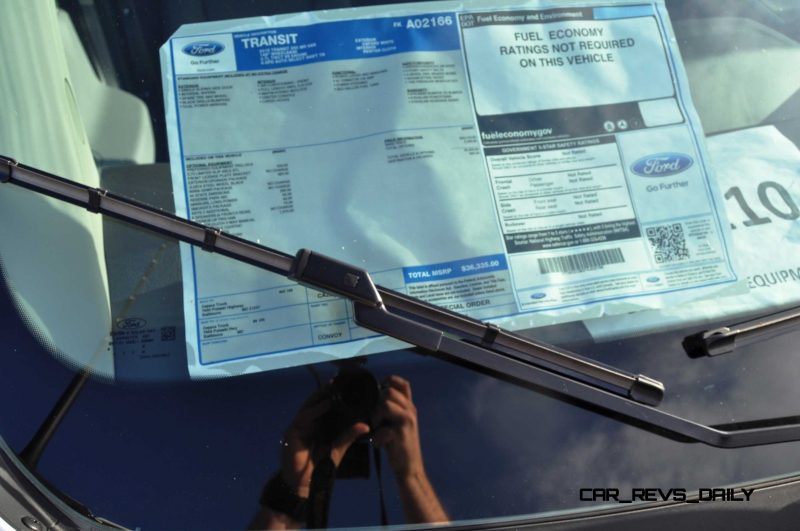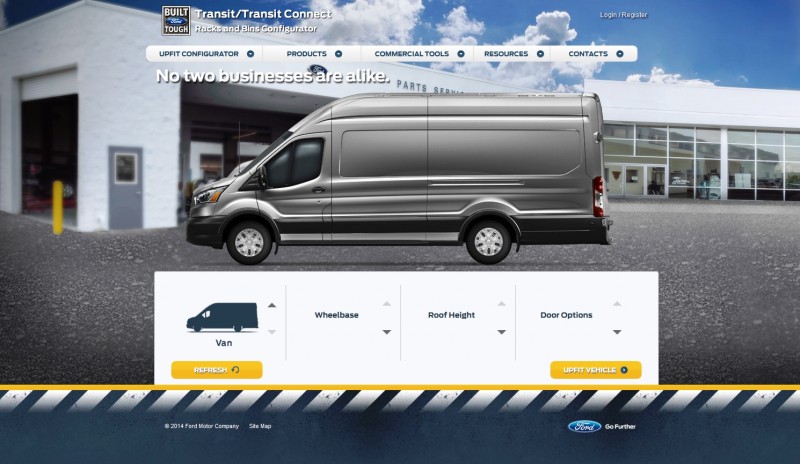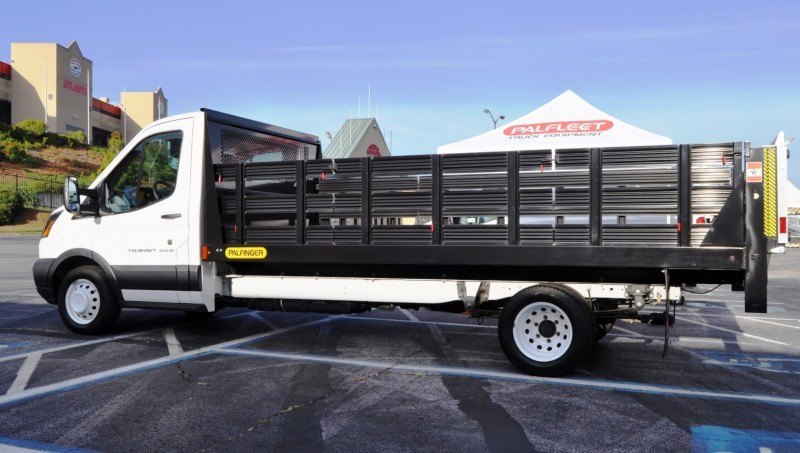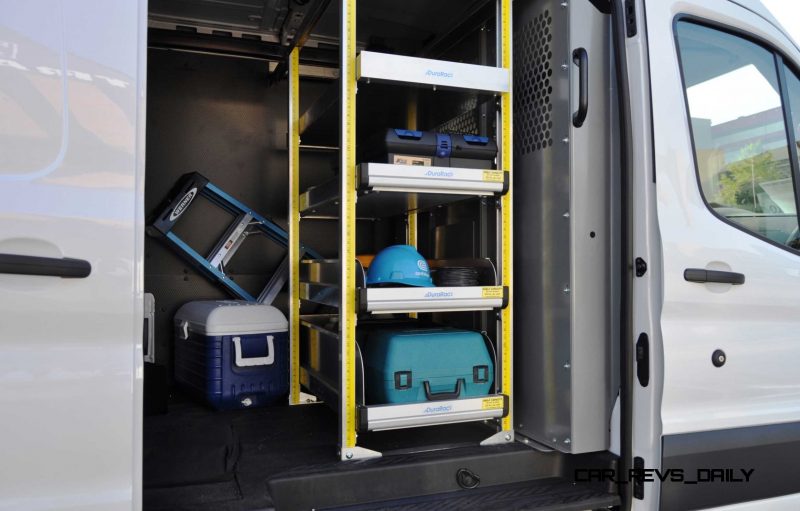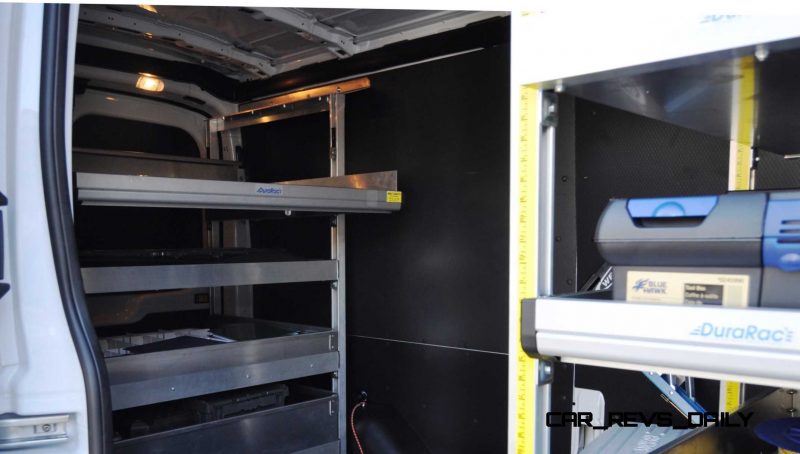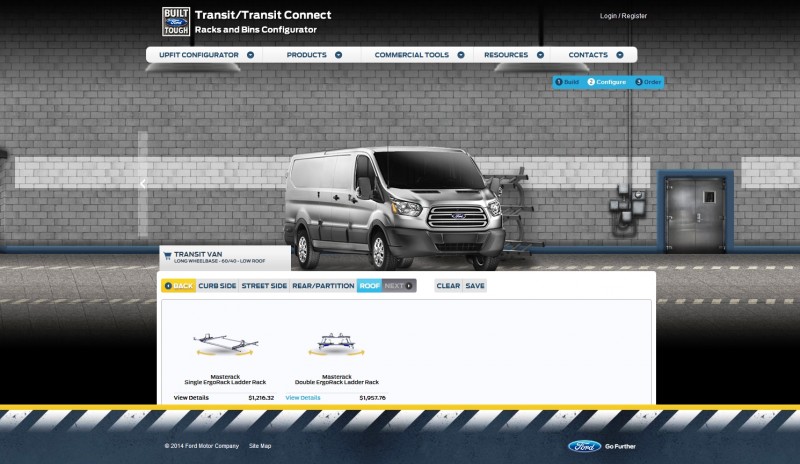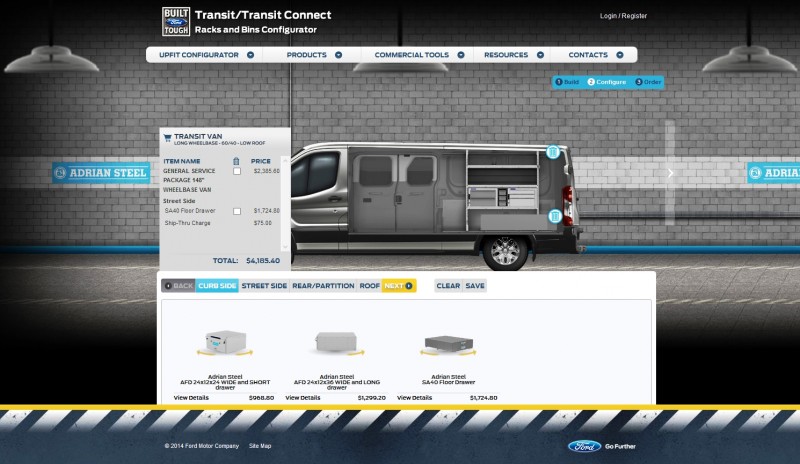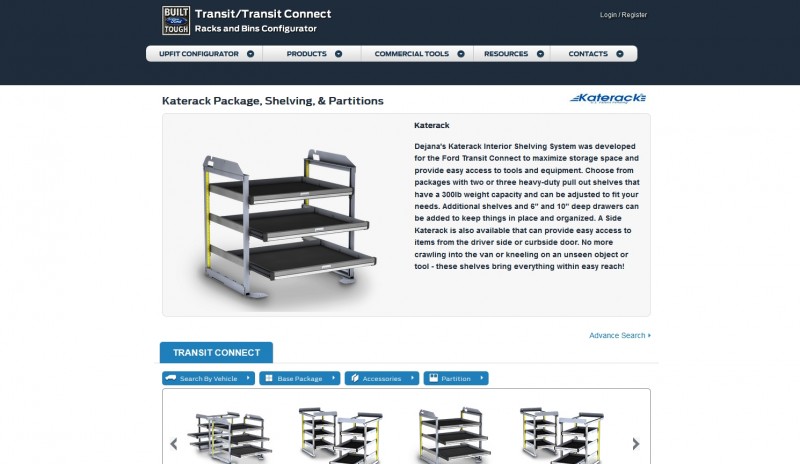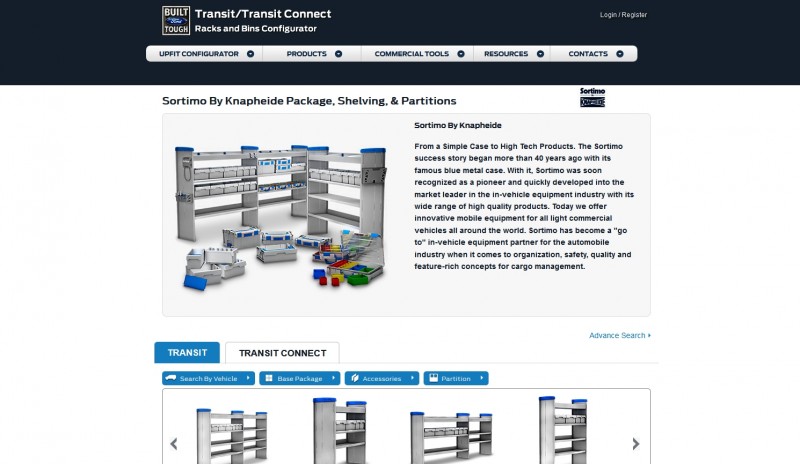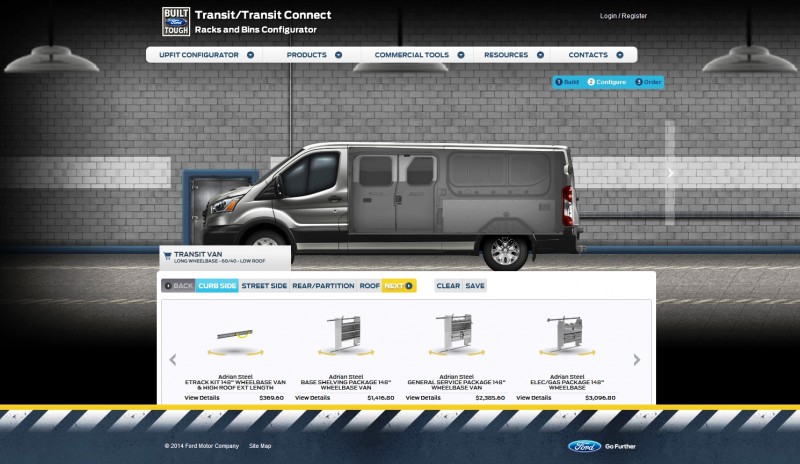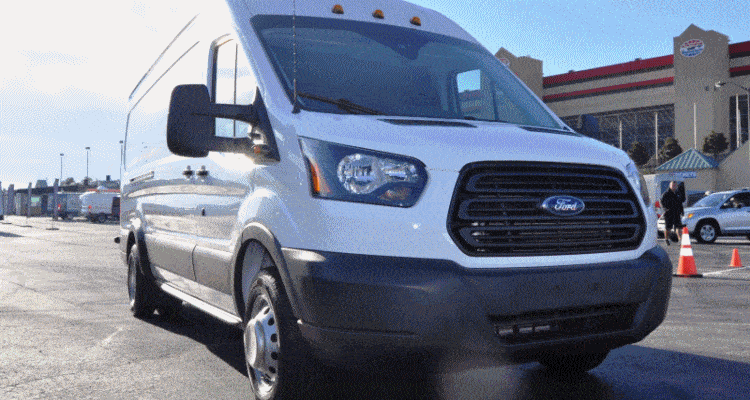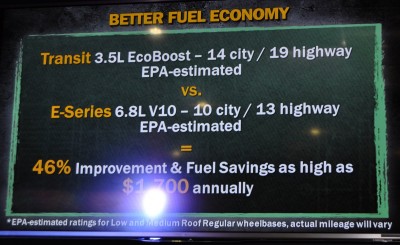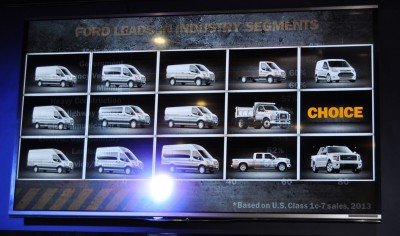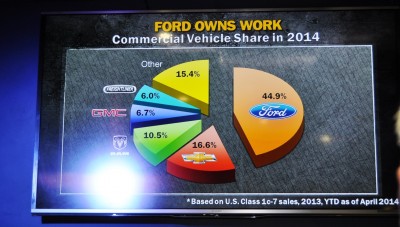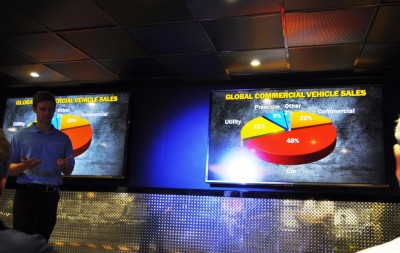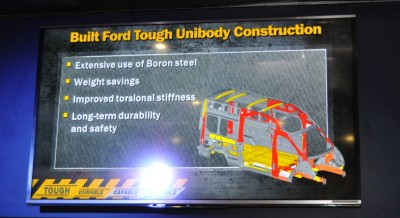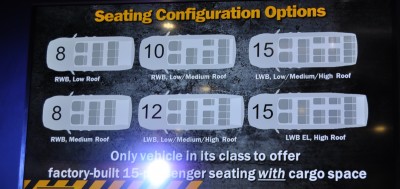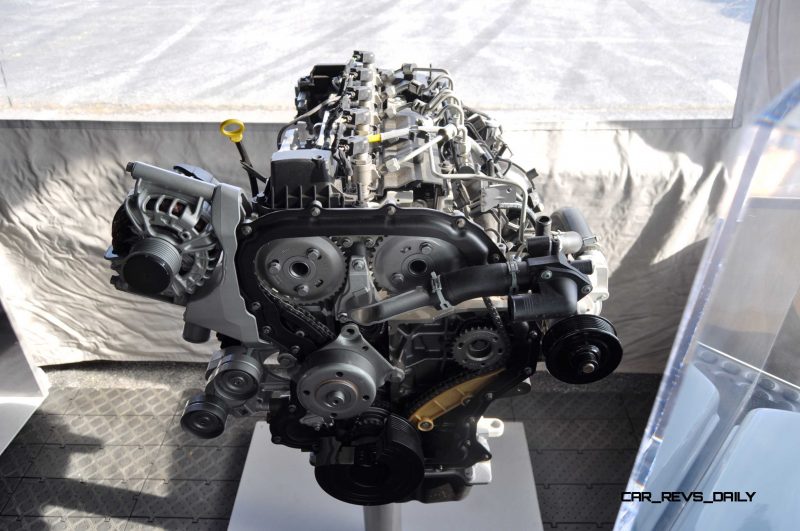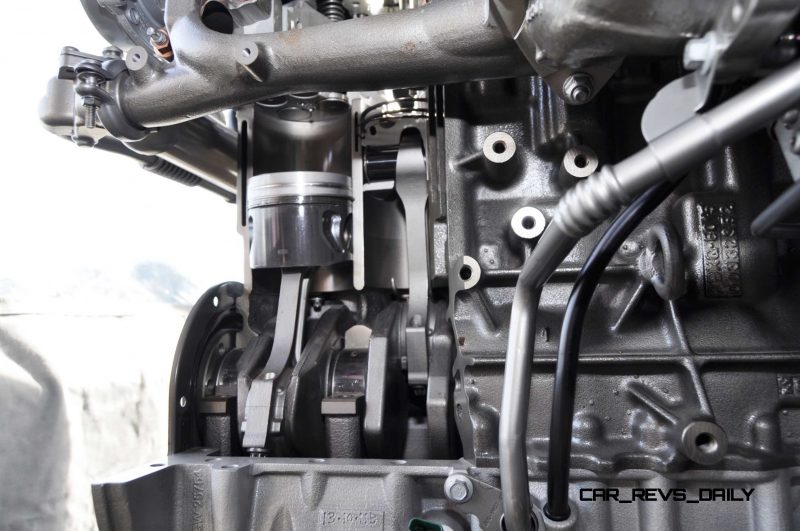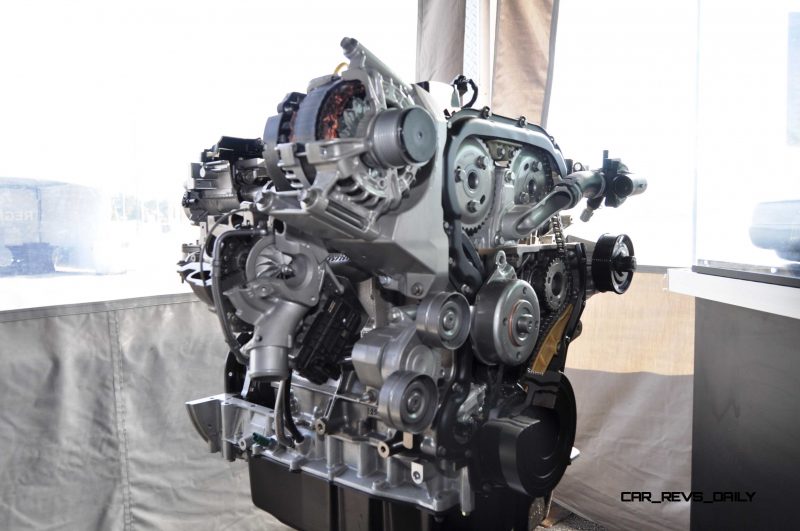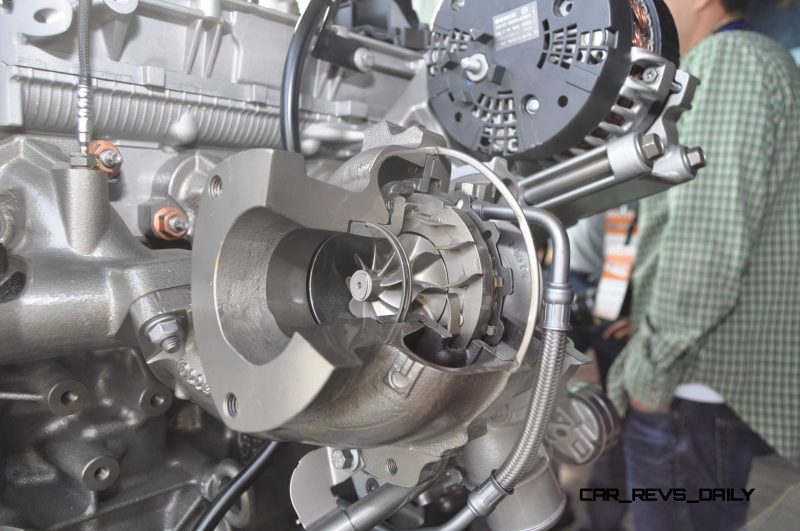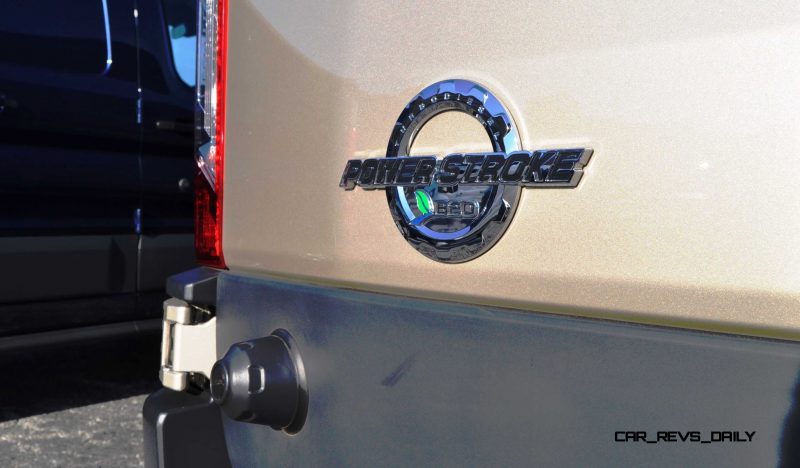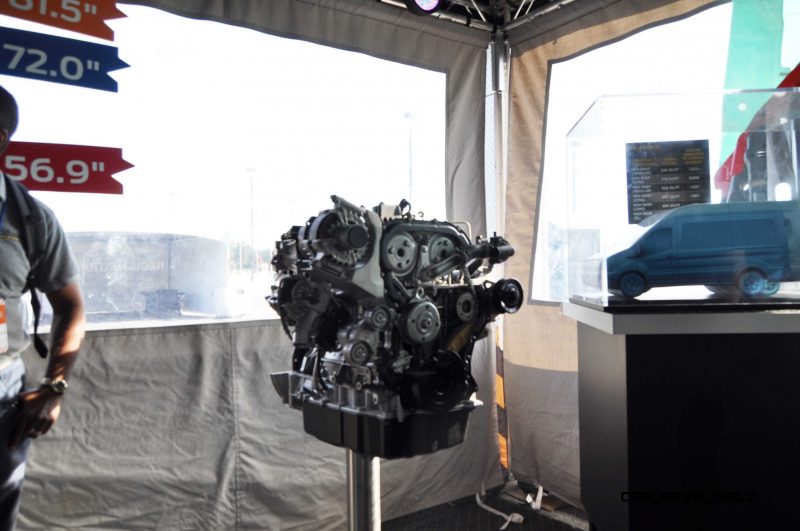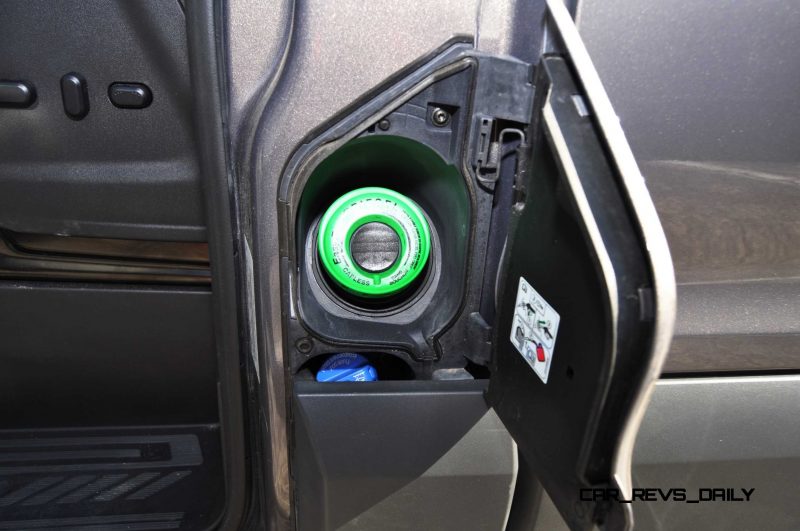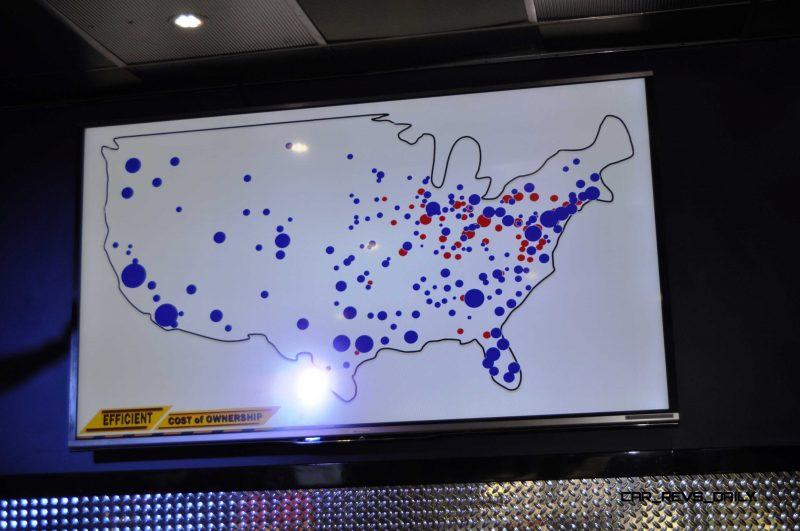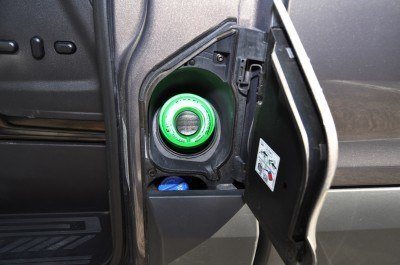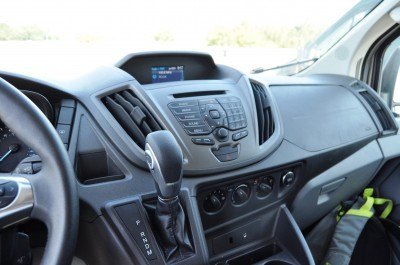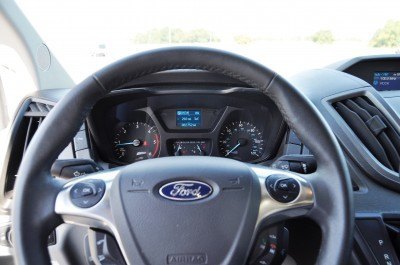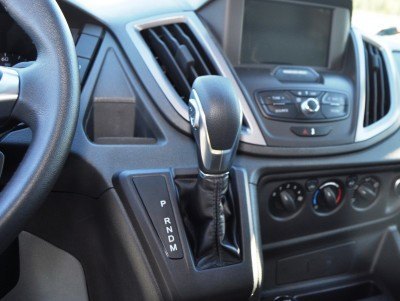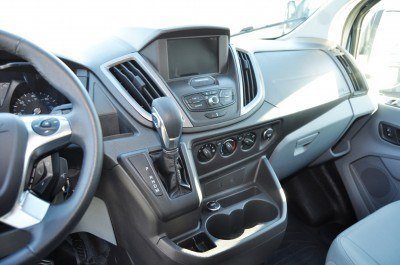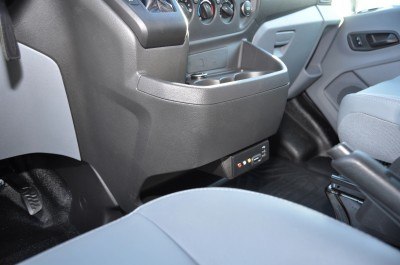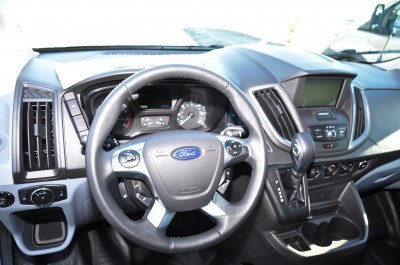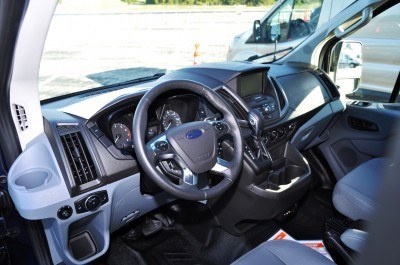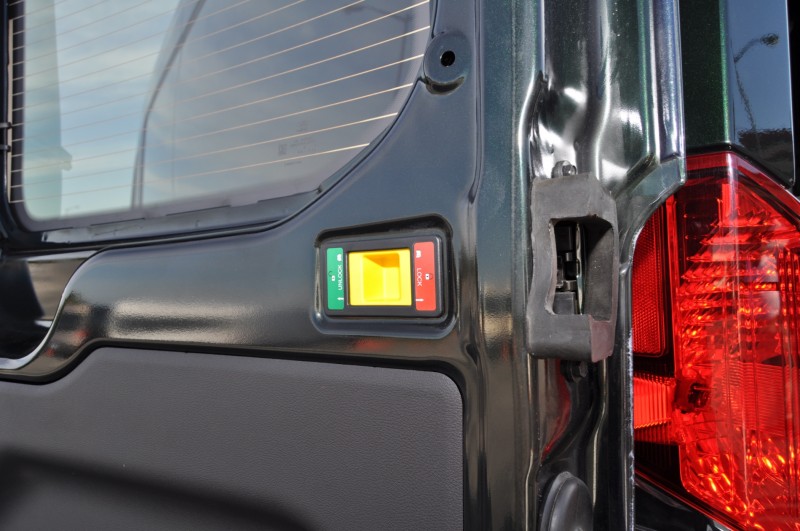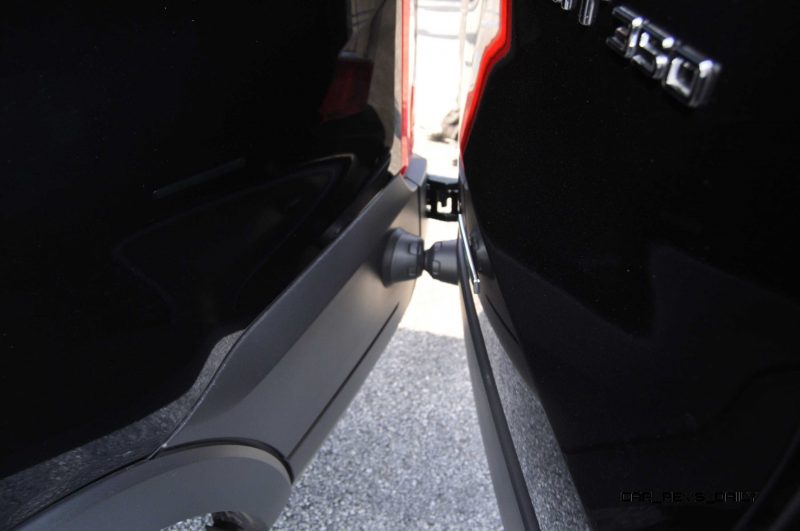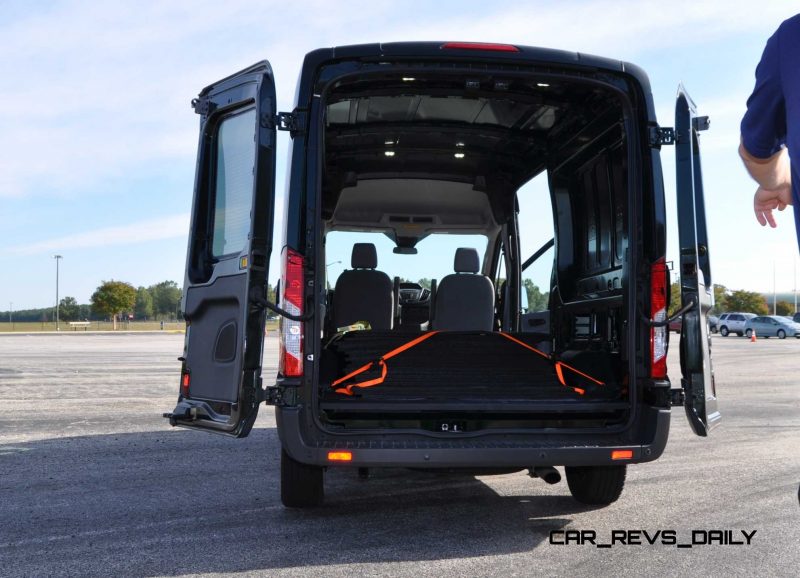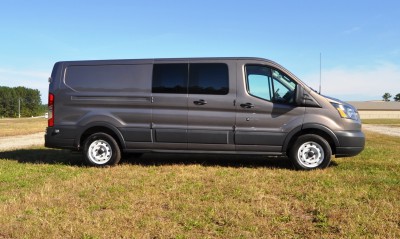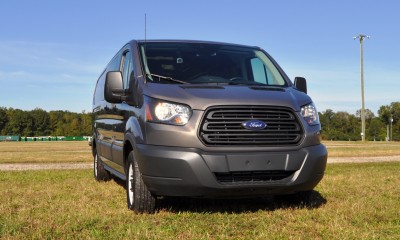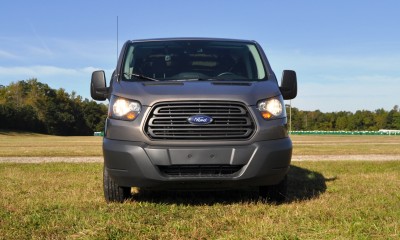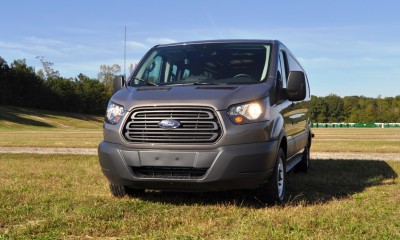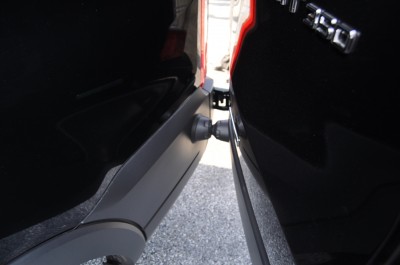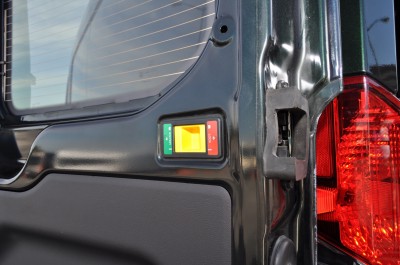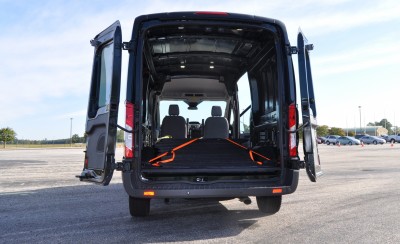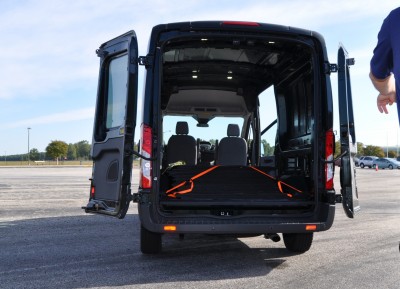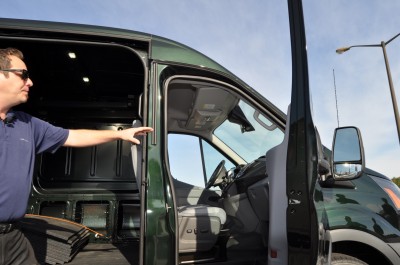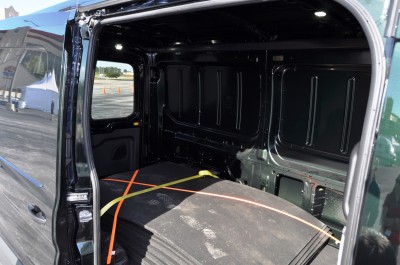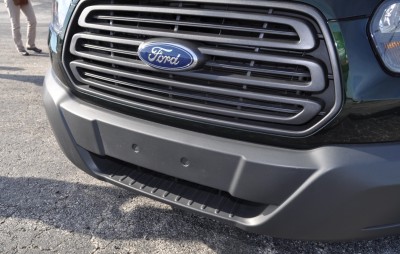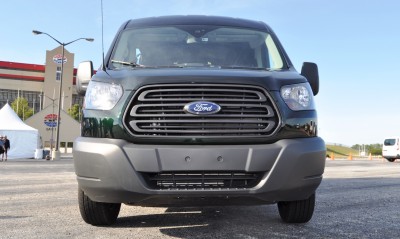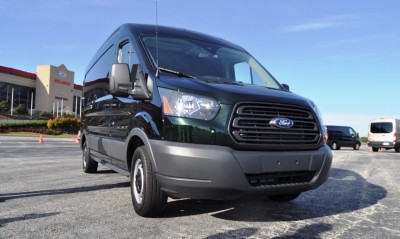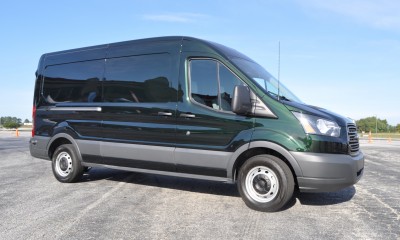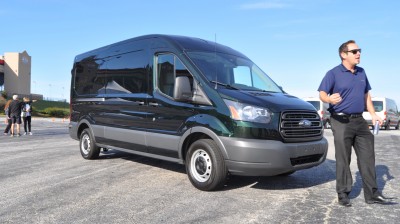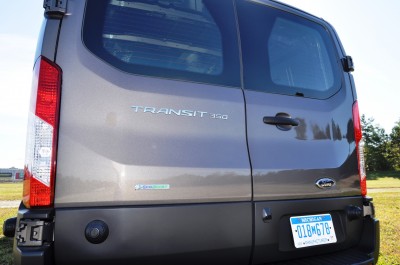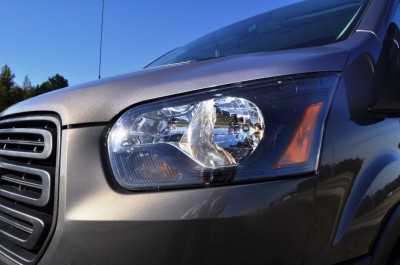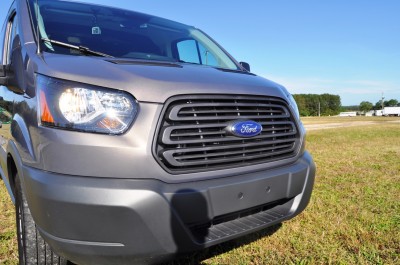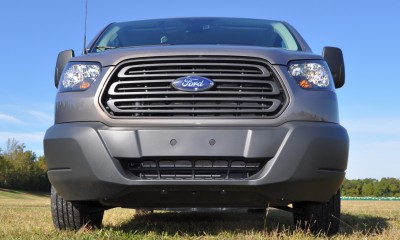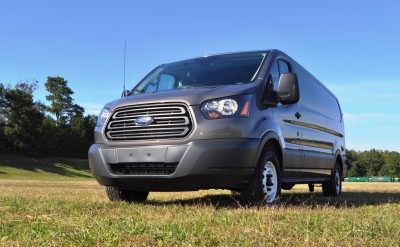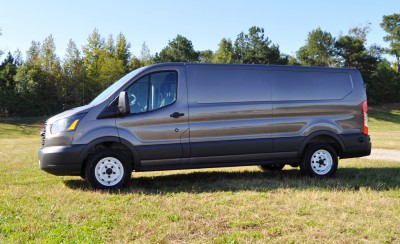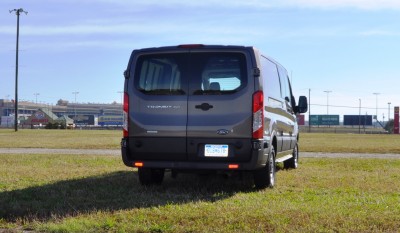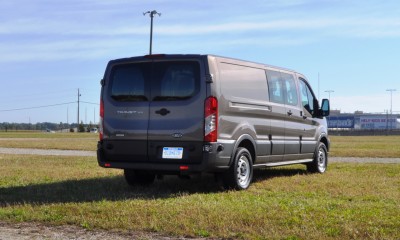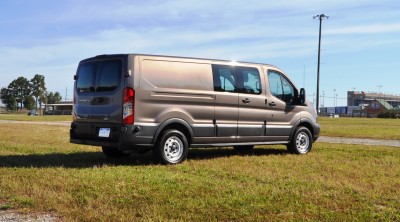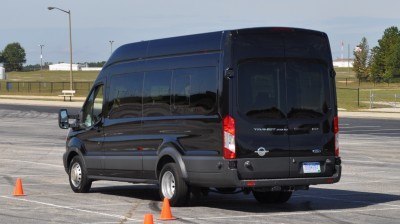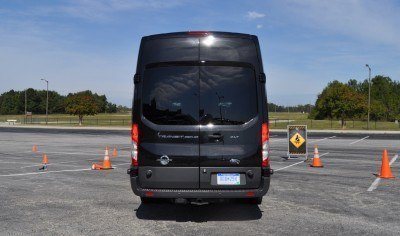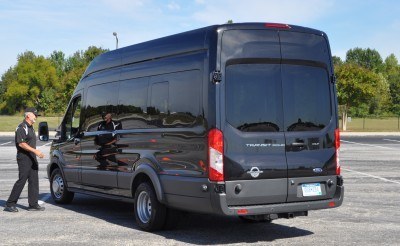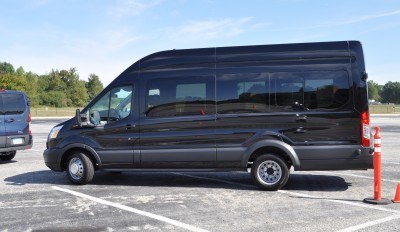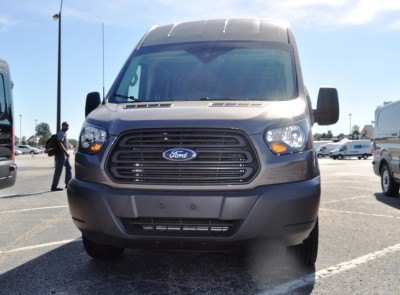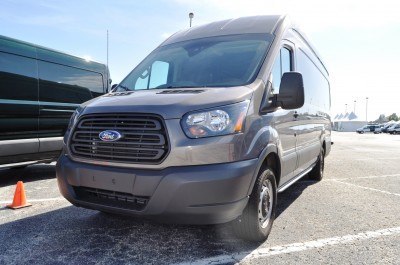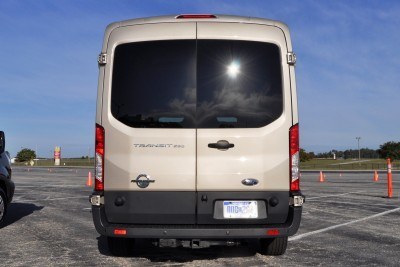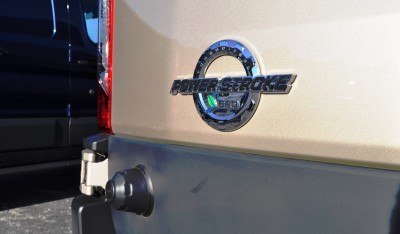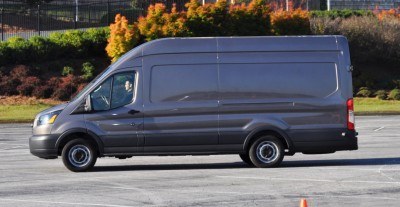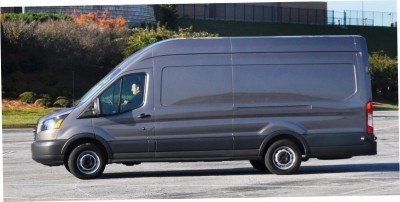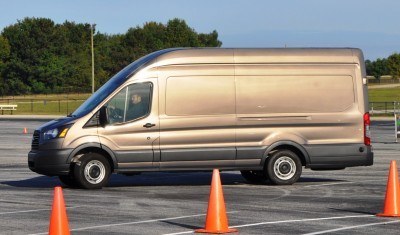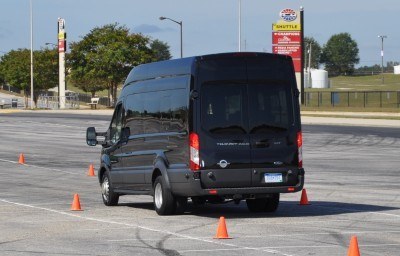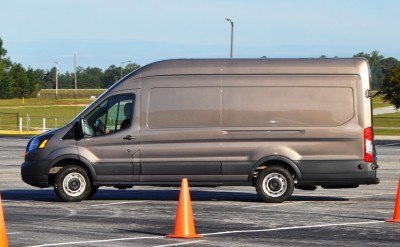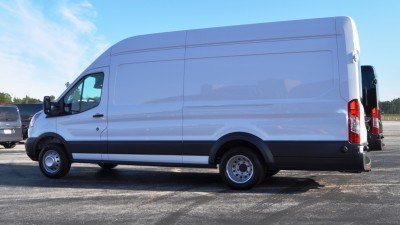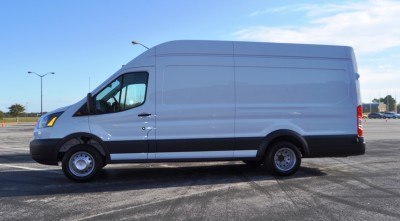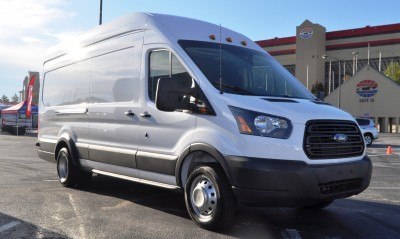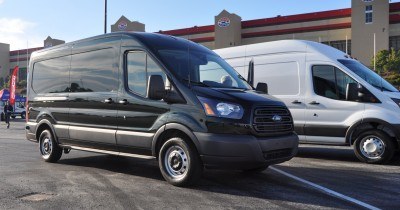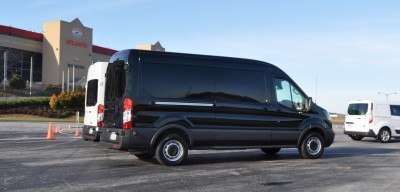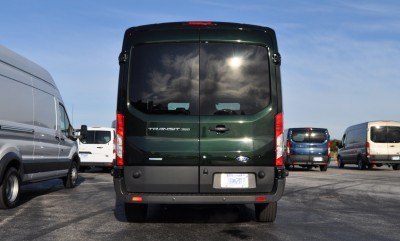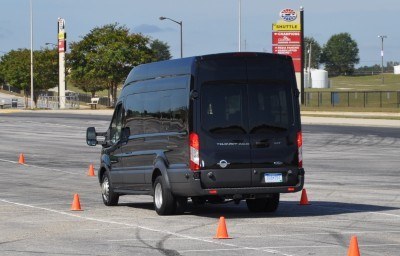One of the most impactful changes in the 2015 Transit vs Econoline is that a huge variety of custom cargo upfits can now be ordered right at a local Ford dealer or through any fleet manager.
This means the trucks arrive ready-to-work with exactly the right set of interior cargo solutions, exterior racks or even full chassis conversions.
We saw a great selection of the Transit Upfits available on Ford’s recent roadshow — and were very, very impressed. Ford’s suppliers all now have factories within 20-miles or so of the giant Transit hub in Kansas City. This means the trucks are automatically shuttled over to Adrian Steele, for example, for a custom-designed cargo setup. They then head back to Ford Assembly before being shipped out directly to customers or to their local dealerships. The process cuts costs, makes the upfits all factory-approved, and shortens order-to-delivery time frames in half.
Adding a custom upfit previously involved a lot of legwork for customer buyers, who often had to take delivery of the naked vans and then contract for the upfitting work to be handled locally. The new setup greatly streamlines everything, and also broadens the selection of upfits available to shoppers nationwide.
The best part? Added value: the upfits cost less overall and can now be handled in one line item with the overall purchase of the vehicles. Upfits also have incentives from the factory for the first time, as well.
This saves money and time previously spent coordinating the upfit of trucks on either a company-wide way that doesn’t address specific use needs, or on a small-batch basis that could be a huge time-spent, logistics and accounting nightmare. 

You can explore and build a custom-configured Transit over here at TransitUpfits.com – and it is worth a browse. Very impressive.
For extra added one-stop-shopping? Ford Commercial Graphics mean your Transit can be branded as a rolling billboard – also right from the factory.
The 2015 Ford Transit definitely makes it easy to make these commercial vehicles into active, working capital right from day one of delivery and into the field on day two.
Here is a small sample of the styles available on the new Transit (and Transit Connect Cargo, by the way).
https://secure.ford.com/transitupfits
2015 Ford Transit Upfits
PowerStroke Transit Review
In the broad and deep Ford Transit line for 2015, there are more than 50 variations in cab setup, overall length, wheelbase, roof height, engine and rear axle setup. The dually rear-end in LWB, high-roof cargo configuration is surely one of the hardest-working in the bunch. This extends to its payload and tow ratings as well as its overall cost-of-ownership.
For cargo and passenger Transits that will cover huge miles with a full pack of cargo in back or on tow, the PowerStroke diesel is a welcome option to consider. This cutting-edge 3.2-liter inline-5 diesel is one of the stoutest pullers of the bunch, while delivering a 25-percent increase in MPG efficiency.
Around a quick circuit set up near Atlanta Motor Speedway, we found the PowerStroke diesel in its largest configurations to be far more of a traditional truck than the veritable sports-car of the line: the EcoBoost low-roof Transit reviewed over here.
With that trucklike drive does come a huge swath of all the new Transit’s benefits inside the front cab and the variations of cargo and passenger setup in back. This means an all-new and very modern driving environment with the latest in MyFord Touch with navigation, the fleet-management telematics, and even a full set of A/V inputs and phone-charging USBs.
With the big PowerStroke diesel’s 25-percent jump in efficiency comes a big leap in overall cost of entry, so it should be carefully considered among shoppers. The diesel adds about $6,000 to the pricing of many Transits, so run the numbers before picking it right off the bat. It is also a bit more sluggish due to the low-revving nature of the engine. The tradeoff is stump-pulling torque that will drive with the same traits with the 2,000-pounds of sample cargo we had on the test track, empty, or with a full payload and a trailer in back.
For these high-intensity usage scenarios, the Transit PowerStroke Diesel’s efficiency gains go through the roof. WHere the base 3.7-liter V6 and optional EcoBoost would be chugging fuel to move all that weight, the PowerStroke will hum along happily and barely dent the checkbook in comparison. Hard stats are thin on thr ground, but with a full load, we’d ballpark an overall 50-percent improvement in monthly fuel costs with a direct comparison of the same-body Transit PowerStroke versus the EcoBoost. That is a big deal for a sinlge owner-operator, and a huge accounting factor in large fleets when extended across dozens of trucks.
For these shoppers, the Transit PowerStroke more than justifies its higher price up front at purchase time.
2015 Ford Transit PowerStroke Diesel
Presentation and Tech Showcase







 The Ford nationwide service network is highlighted on the below chart versus the Mercedes-Benz Sprinter service availability. As the blue dots go nationwide, getting a Sprinter serviced anywhere west of the Mississippi is virtually impossible. That being said, the new 2015 Sprinter will offer a new 4×4 drivetrain that Ford has yet to match.
The Ford nationwide service network is highlighted on the below chart versus the Mercedes-Benz Sprinter service availability. As the blue dots go nationwide, getting a Sprinter serviced anywhere west of the Mississippi is virtually impossible. That being said, the new 2015 Sprinter will offer a new 4×4 drivetrain that Ford has yet to match.
Even so, the return of a diesel to Ford large vans is a big achievement. This engine is far more practical and affordable than the V10 PowerStroke that was briefly available in the Econoline.
2015 Ford Transit PowerStroke Diesel
Interior
2015 Ford Transit EcoBoost
Exterior
2015 Ford Transit PowerStroke Diesel
Exterior
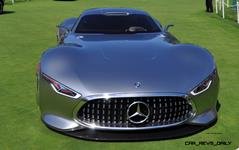
Tom Burkart is the founder and managing editor of Car-Revs-Daily.com, an innovative and rapidly-expanding automotive news magazine.
He holds a Journalism JBA degree from the University of Wisconsin – Madison. Tom currently resides in Charleston, South Carolina with his two amazing dogs, Drake and Tank.
Mr. Burkart is available for all questions and concerns by email Tom(at)car-revs-daily.com.

